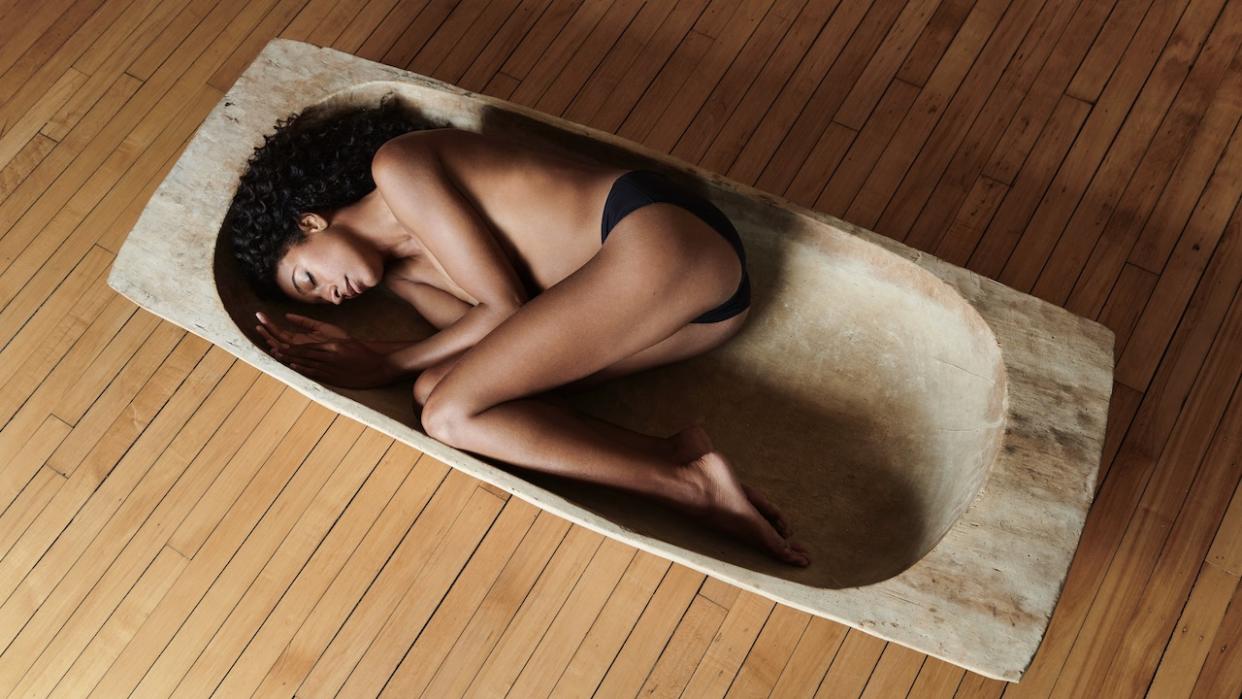"Black Rainbows is a truly astonishing record, a revelation": Corinne Bailey Rae comes of age on one of 2023's most remarkable, must-hear albums

While visiting Chicago’s Stony Island Arts Bank during her 2016 US tour, Corinne Bailey Rae experienced a Damascene-like awakening.
“I knew when I walked through those doors that my life had changed forever,” she says.
Curated by artist and activist Theaster Gates, the Stony Island Arts Bank preserves African American heritage through black art; books and periodicals, vinyl records, sculptures, ceramics, glass slides, masks and music scores are all on display. As is a collection of what is termed ‘negrobilia’ - 19th and 20th century objects depicting stereotypical/racist images of black and indigenous people.
The archive’s impact on Bailey Rae was immediate, prompting her to readdress her own relationship with her creative output and explore “what the possibilities of my work can be…”
The result: Black Rainbows, her fourth album and a truly astonishing record, with each of its 10 tracks inspired by the artefacts she’d seen there.
Co-produced by Bailey Rae with her longtime collaborator Steve Brown, it’s a real sonic surprise. Flitting from searing punk noise to astral gliding electronica to afro futurist R&B, it’s hard to believe that this is the same artist who created 2016’s The Heart Speaks In Whispers, its sweet soulful nature and mellow vibe recalling Erykah Badu.
Take New York Transit Queen, a tribute to the first of the African American Miss New York Transits, Audrey Smaltz, which sees Bailey Rae go all ebullient girl group/ scuzzy grunge pop, as cheerleader clapping and drumstick clicks count in abrasive guitars and the black glamour pin up is reclaimed and celebrated as sex positive feminist.
Aesthetically it’s how you imagine Bailey Rae’s first band Helen, the mostly female rock group she formed when she was just 15 and inthrall to L7, might have sounded if they’d graduated from the Leeds indie circuit.
Then Erasure, a gut reaction to the negrobilia she saw and its literal erasure of black childhood: over the song’s punk metal thud Bailey Rae seethes and screams: “They put out lit cigarettes/Down your sweet throat/They fed you to the alligators”?” Her anger, rage and horror palpable. It’s like Bailey Rae has been reborn a Dahomey Amazon.
Earthlings brings about yet another left turn: a voluptuary of sonic tributaries, it’s defined by hauntological bleeps and electronic textures, while A Spell, A Prayer, with its mix of ghostly synths and symphonic soul links past, present and future through notions of ancestral pain and epigenetic trans-generational inheritance. Were there moments in slaves’ lives when they experienced a sense of freedom? Bailey Rae wonders. “Finger tip to finger tip, eye to eye, lay your hip against my hip” she sings demurely, suggesting perhaps in desire communion with the divine is found. On Black Rainbows, Bailey Rae comes of age. It really is a revelation.
